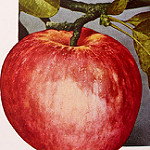
As a collective of migrant women* we analyzed our own situation in Austria – as workers in the sex industry, cleaners for leasing firms, housekeepers and caregivers in companies and private households, care assistants in the health sector, but also as “the illegal”, asylum seekers, the unemployed, housewives, students, academics and scientists. And we decided to act.
Determined by historical circumstances, we began our work for maiz as a self-organized association of and for migrant women* in Linz.
On the one hand, we have the experiences and positions we brought with us in the resistance against the military dictatorships in Latin America of the 1970s and 1980s, the implementation of neoliberal policies, the decline of socialist states at the end of the 1990s and the worldwide rise of neoliberalism to a hegemonic position. On the other hand, we exist as migrant women* in the Western European territory, which leaves us with undignified living and working conditions, and a lack of perspectives and spaces that could allow for self-organized action.
A few years later, in 1994, we witnessed the indigenous uprising in Chiapas... In the same year, we began to politically organize ourselves as migrants, visibly and in the center of Linz.
maiz was founded.
maiz is located in the heart of Linz, a city whose history and appearance were significantly shaped by National Socialism. To this day, the multi-layered dimensions of the former National Socialist extermination policy can be seen and felt in the Upper Austrian capital. As migrants, we have consciously claimed this pivotal and historically significant place for ourselves.
Through our presence we claim it as a public space of participation and encourage equal and autonomous structures of togetherness. In doing so, we fight against patriarchal and heteronormative structures and violence, as well as capitalist exploitation, unequal political power relations, racist exclusion, sexism and homophobia. At the center of these iconic sites of the Topography of Terror, migrants’ radiuses of operation are forced, expanded, and invented. We have articulated a resistance and postcolonial incorporation in the sense of “cultural anthropophagy”.
The work of maiz is driven by a strategic commitment to disrupt the dominant production of knowledge and advocate for non-existent spaces for migrants. We undertake this endeavor with a keen awareness of the risks of appropriation and the conflicts inherent in such interventions, recognizing the complexities of social dynamics and the accompanying contradictions. Our intention is to set impulses for shifts, to bring about change, and to question ourselves in the process. We want to discard and design questions that create ruptures and irritations, questions that make visible paradoxes, antagonisms and the necessity of a change.. The essential requirement for this is the development of new strategies and utopias. maiz has always pursued the goal not to be but to become.
maiz’s feminist appropriation of the anthropophagic concept entails a reconfiguration of contexts. It involves border displacement, an emancipatory claim to space, and resistance against the exoticization of the ‘other’. Relevant is not only the question of what is being talked about, but also who speaks for whom and what is recognized as legitimate knowledge in the first place as well as when and why. To initiate a profound discourse on the prevailing gendered and racist international division of labor and the associated migration issues, we assert our commitment to engaging in decolonization efforts. In this endeavor, we acknowledge the interplay between theory and practice, as well as the dynamics between education and power.
About the maiz apple
(According to Tania Araujo, one of the founding members of maiz)
According to the Christian Bible, Adam and Eve were expelled from paradise due to the consumption of the forbidden fruit – an apple. In this context, the apple represents sin and dissidence, serving as a powerful emblem for the forbidden fruit of paradise, associated with themes of immortality, temptation, love, and eroticism.
As migrants, we too find ourselves repeatedly on the verge of expulsion from the Austrian ‘paradise’. maiz combats this through a political analysis and emancipatory efforts involving migrant women*. These efforts are grounded in self-empowerment and a critical examination of the existing power dynamics. In the maiz symbolism, the apple of knowledge is not only sinfully pink but also symbolizes a terrestrial globe, from whose northern hemisphere we take a hearty bite!
The apple as a metaphor of epistemological and power-political conflicts
-
In the beginning, there was Paradise, Adam and Eve, and a snake on an apple tree.
-
In the beginning, there was the apple: the apple of knowledge and the apple from the tree of knowledge.
-
In the beginning, there was the apple, and it was consumed.
-
Thus, the history of humankind commenced.
-
Adam and Eve were banished from Paradise due to an apple: the apple of sin, the apple as a symbol of dissidence, the apple as the forbidden fruit of paradise, the apple as the classic fruit of immortality, seduction, love and eroticism.
The apple in maiz symbolism
Migrants, much like Adam and Eve, are frequently cast out from the Austrian paradise – the Garden of Eden. This expulsion stems from the notion that, akin to Eve, we possess the power to seduce and the desire to partake in the forbidden apple of knowledge.
At the dawn of humanity, there existed both epistemological and power-political conflicts: knowledge, skills, competences etc.
Into the ripe apple we bite, with anthropophagic laughter and subversive force in the form of emancipatory and political work. Bitten into the unmistakable pink colored apple, sinfully pink bitten apple, bitten globe, not bitten anywhere, bitten into North, because localization and situatedness are indispensable moments of liberation. Bitten globe as a metaphor against the imaginary geographies constructed in the North. Bitten not from nowhere, but from the South. “South is not only a physical-geographical space; it is a ‘metaphor for the suffering of humans’. South is also the privileged place of critique. The vision of the South is of an ‘epistemological zone’ that opposes that of the North in the ‘geopolitics of knowledge’” (Sousa Santos 2004).
maiz and the apple of knowledge: beyond the theoretical, analytical and epistemological questions and disputes, we also raise a new political problem: maiz aims to realize a utopia in a world where there is no utopia. Utopias have their schedules, says Ernst Bloch (1985). And we also have schedules, curricula, timetables and even manuals.
Post Scriptum:
In the beginning there was the apple, organic and low in calories, without the dictatorship of beauty. After that, the bathroom scale ruled the lives of Adam and Eve. And the devil himself calculated the ideal weight of the people. But that’s a whole different kettle of “apples”...
Author: Tania Araujo
In: maiz - Handbuch zum Unterricht als transdiziplinäres Projekt. Vorbereitungslehrgang zum externen Hauptschulabschluss. 2010
